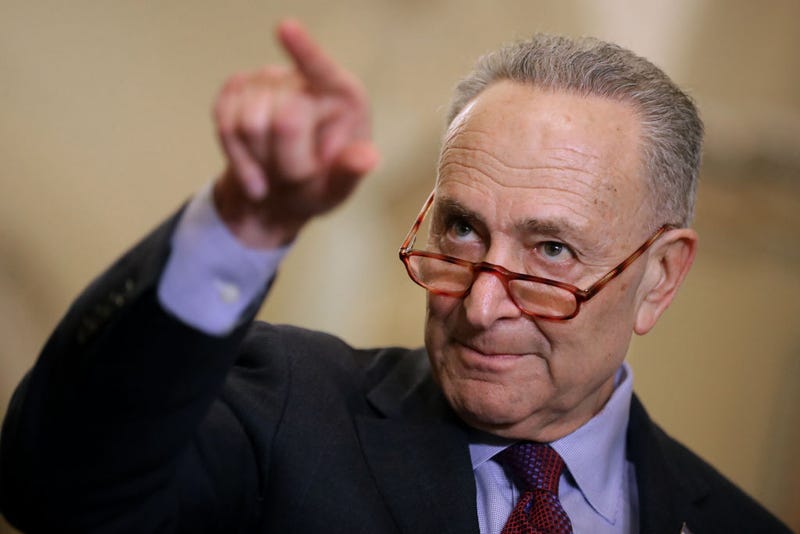
Senate Majority Leader Chuck Schumer says the Democrats have come together on a key piece of their infrastructure legislation: a measure that would lower the cost of prescription drugs for Americans.
The feature is a major component of President Joe Biden’s “Build Back Better” bill, and it will now be included in the package thanks to an about-face by Arizona Senator Kyrsten Sinema, who had previously opposed it.
The proposal would allow for the federal government to directly negotiate the price of insulin and a few other drugs that will no longer be protected from competition as of the start of 2022. It would also limit out-of-pocket prescription drug costs for seniors at $2,000 per year.
"We've heard this from people across the country who have serious illnesses and can't afford their medicine," Schumer said.
"What a painstaking position to be in, it's horrible. Today we've taken a massive step forward in helping to alleviate that problem."
Gulf Coast Bank and Trust President Guy Williams joined Newell Normand on WWL Radio to discuss what lower drug costs for American citizens would really mean for pharmaceutical development and creation.
“Because the U.S. is such a giant drug market, almost all the drug innovation occurs here,” Williams said. “I’m not saying none, but companies innovate drugs because they can get a U.S. patent, they can make a lot of money in the U.S., and literally make a global difference in saving lives. The benefit to the companies is that they know they can make significant profits because we have a giant medical system here.”
Williams said the socialized medical care infrastructure in the other industrialized nations means that those countries negotiate lower prices for their purchases from the major drug companies, leaving less room in the profit margin for innovation and forcing the U.S. to foot that bill.
But as the Democrats now have the votes to move forward with the prescription drug cost negotiation component of their infrastructure legislation, it appears that gap might be poised to close. Williams said that a lowering of drug costs for Americans might cause an increase for other nations, balancing the cost more equitably.
“If we extract all the profit from the drug business, it’s not magic. There’s less money to research. So there should be a balance where we’re not allowing the other rich countries to freeload on the American taxpayer and the American consumer,” Williams said.
A major cog in the machinery that makes this proposal effective is a penalty that will be put in place against drug companies if they raise drug prices higher than the rate of inflation, a regulation supported by the AARP.
"Allowing Medicare to finally negotiate drug prices is a big win for seniors," read an AARP statement following the announcement that the package will move forward. "Preventing prices from rising faster than inflation and adding a hard out-of-pocket cap to Part D will provide real relief for seniors with the highest drug costs."

